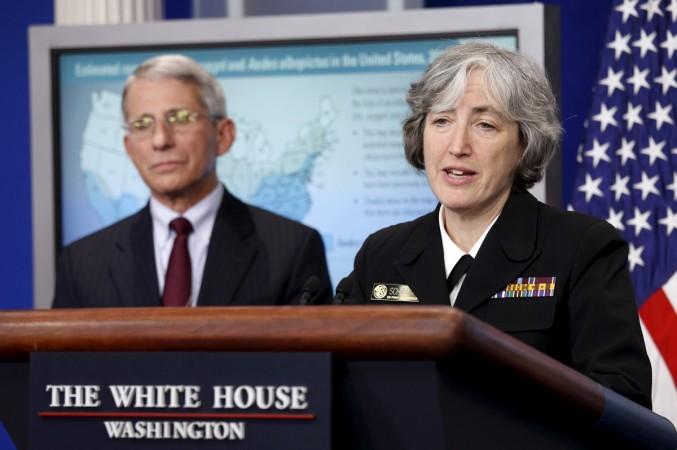
Amid a growing scare of Zika virus, the U.S. health officials said Monday they do not have enough funds to tackle the disease. The health officials also urged the U.S. Congress to immediately pass $1.9 billion funding for Zika preparedness that the Obama administration requested in February, Reuters reported.
The White House last week said it would redirect the $589 million funding for Zika preparedness, which was earlier allocated to tackle the Ebola virus.
Anthony Fauci, director of the U.S. National Institute of Allergy and Infectious Diseases, said in case of non-availability of the required money, the officials would be forced to redirect money meant for research into malaria, tuberculosis and a universal flu vaccine.
"I don't have what I need right now," Fauci was quoted as saying by the Reuters. Fauci warned that if the funding crunch reaches a point where the stopgap money runs out, health officials would have to spend the money from other accounts, due to which the research projects on various diseases can suffer.
The U.S. health officials are worried about the further spread of the Zika virus, especially as temperatures soar during summers. They also said the Zika virus threat is scarier than the researchers earlier thought.
The Zika virus is now present in 30 states of the U.S. and hundreds of thousands of infections could appear in Puerto Rico.
"Everything we look at with this virus seems to be a bit scarier than we initially thought," Anne Schuchat, deputy director at the U.S. Centers for Disease Control and Prevention said, according to Reuters. Schuchat further said the states need to be well prepared to prevent widespread local transmission of the virus. "Aedes aegypti, the mosquito species that primarily transmits the virus, is present in about 30 states, rather than 12 as previously thought," she added.
A total of 346 cases of Zika have been reported in the U.S. so far. In Brazil, which is the worst Zika-hit country in the world, the virus has been linked to the congenital defect microcephaly, characterised by abnormally small size of heads in babies.
The World health Organization declared Zika as a public health emergency Feb.1, 2016.















